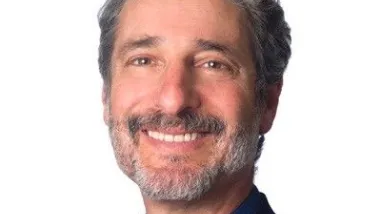Planning issues are often considered to be conflicts between the interests of different groups, such as neighborhood residents versus developers, or motorist versus transit users. But planning concerns the future, so it often consists of a conflict between the interests of our current and future selves.
Planning issues are often considered to be conflicts between the interests of different groups, such as neighborhood residents versus developers, or motorist versus transit users. But planning concerns the future, so it often consists of a conflict between the interests of our current and future selves.
For example, I have relatives who live in the city of Vancouver, which is developing an Ecodensity Policy that will increase infill development, particularly affordable housing and commercial services along major public transit corridor. It's a controversial policy with lots of opposition from residents who assume that it contradicts their interests. "It will just increase traffic and parking problems," they object. They should think again. They may want affordable housing and better transport options in the future.
For example, one of my relatives who opposes Ecodensity lives in a nice old, relatively inexpensive apartment in a desirable Vancouver neighborhood and drives to work every day. Sometime in the future her landlord will probably raise the rent or redevelop the building, forcing this woman to search of more affordable housing, while increasing urban traffic, rising fuel prices and aging may make driving more difficult. At that time she may benefit a lot from Ecodensity. Even if she moves into an older apartment and continues to drive she will benefit from overall reductions in housing prices and traffic congestion. Vancouver housing will not become really cheap, nor will traffic congestion disappear, but Ecodensity should significantly reduce these problems, making her future self better off. This may even determine whether or not she can continue to live in one of the world's most livable cities.
Imagine what a message from yourself a couple decades in the future might say concerning the type of development policies your community should establish now. If you are lucky and selfish the message might favor restrictions on affordable, infill housing and automobile-oriented transport planning. However, if your future self might be physically disabled or poor, or concerned about physically and economically disadvantaged neighbors, your future self will want lots of affordable housing located in areas with good travel options, and plenty of local services that support healthy and happy lifestyles, such as local parks and inexpensive shops. Wow, we just reinvented Ecodensity!
Planning decisions we make today will affect our quality of life in coming years and decades. Since our future condition is unknowable, it makes sense to create communities that do a really good job of caring for disadvantaged people, because that could be us.
Memo from future self, "Hope for the best but prepare for the worst."

Planetizen Federal Action Tracker
A weekly monitor of how Trump’s orders and actions are impacting planners and planning in America.

Chicago’s Ghost Rails
Just beneath the surface of the modern city lie the remnants of its expansive early 20th-century streetcar system.

Amtrak Cutting Jobs, Funding to High-Speed Rail
The agency plans to cut 10 percent of its workforce and has confirmed it will not fund new high-speed rail projects.

Ohio Forces Data Centers to Prepay for Power
Utilities are calling on states to hold data center operators responsible for new energy demands to prevent leaving consumers on the hook for their bills.

MARTA CEO Steps Down Amid Citizenship Concerns
MARTA’s board announced Thursday that its chief, who is from Canada, is resigning due to questions about his immigration status.

Silicon Valley ‘Bike Superhighway’ Awarded $14M State Grant
A Caltrans grant brings the 10-mile Central Bikeway project connecting Santa Clara and East San Jose closer to fruition.
Urban Design for Planners 1: Software Tools
This six-course series explores essential urban design concepts using open source software and equips planners with the tools they need to participate fully in the urban design process.
Planning for Universal Design
Learn the tools for implementing Universal Design in planning regulations.
Caltrans
City of Fort Worth
Mpact (founded as Rail~Volution)
City of Camden Redevelopment Agency
City of Astoria
City of Portland
City of Laramie






























